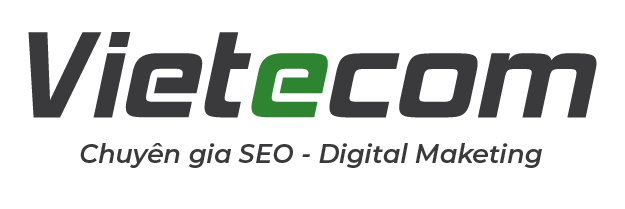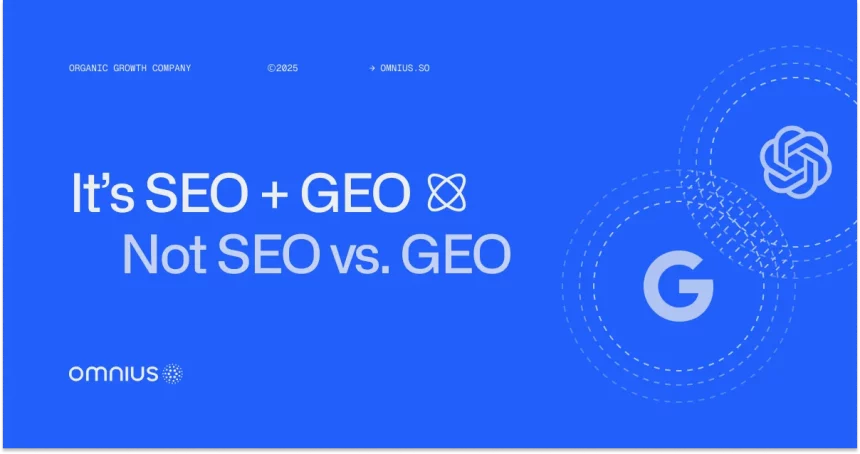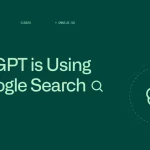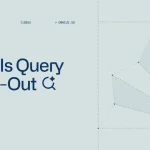It’s SEO + GEO; Not SEO vs. GEO
The biggest change in how people search for information on the Internet is happening as we speak. No doubt, the largest one in the last 25 years.
With AI search exponentially increasing, the concept of Generative Engine Optimization (GEO) with synonyms, such as AEO, AIO, LLMO, is introduced as a practice to improve the probability of being cited in LLM search engines, notably ChatGPT, Perplexity, Claude, Gemini and more.
In controlled experiments, GEO tactics improved visibility by up to 40%. But the researchers were clear: these improvements only applied to content that was already discoverable and indexed.
Understandably, companies want to hop on this AI search growth bandwagon, but from what we’re seeing on the market and hearing at the meetings, expectation needs to be more realistic.
There’s a big misconception, often spread by people who haven’t lived through one search industry cycle, that “SEO is dead” and that GEO is the new SEO.
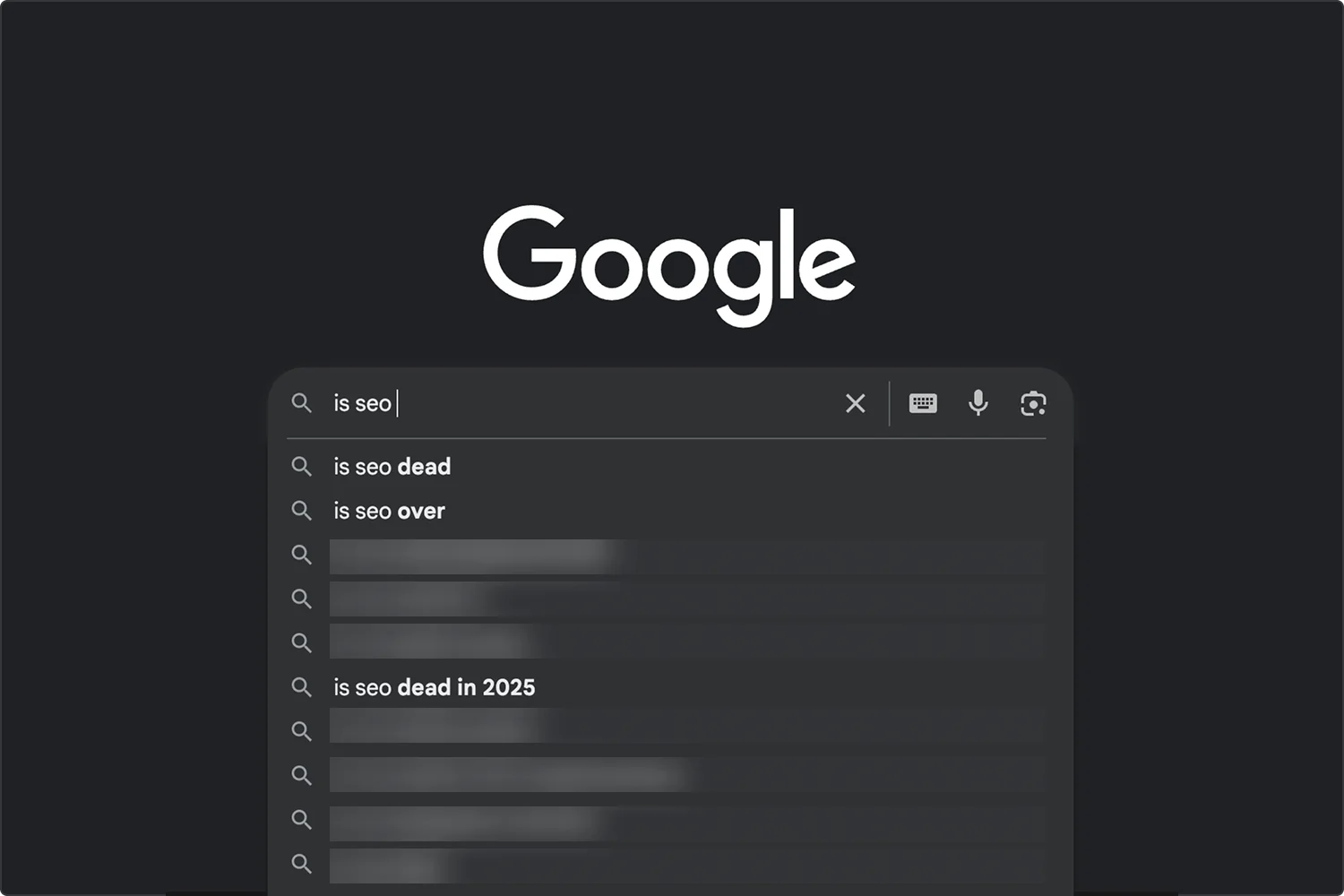
The reality is the opposite.
GEO is only possible because of SEO.
And, based on the data you’ll see below, it’s clear that GEO is not a new iteration of SEO, but rather a new subcategory of it. You cannot optimize for AI search if you have not invested in SEO.
If Google cannot crawl and index your website, ChatGPT or Perplexity will not know you exist.
TL;DR
- SEO and GEO are not rivals.
- SEO makes your content eligible by ensuring it is discoverable, crawlable, and authoritative.
- GEO increases the chances that eligible content is cited inside AI answers. Together they form the new organic stack: traditional rankings plus AI-driven visibility.
Market data
Generative search is expanding quickly, but it’s still small compared to Google, indicating that focusing only on AI search would not be a good idea.
In June 2025, AI platforms drove 1.13B referrals to the top 1,000 sites (+357% YoY), which is impressive, but Google still sent ~191B referrals during the same period.
In August 2025:
- Google handled ~83.8B visits
- While ChatGPT logged ~5.8B (~3.4% of Google).
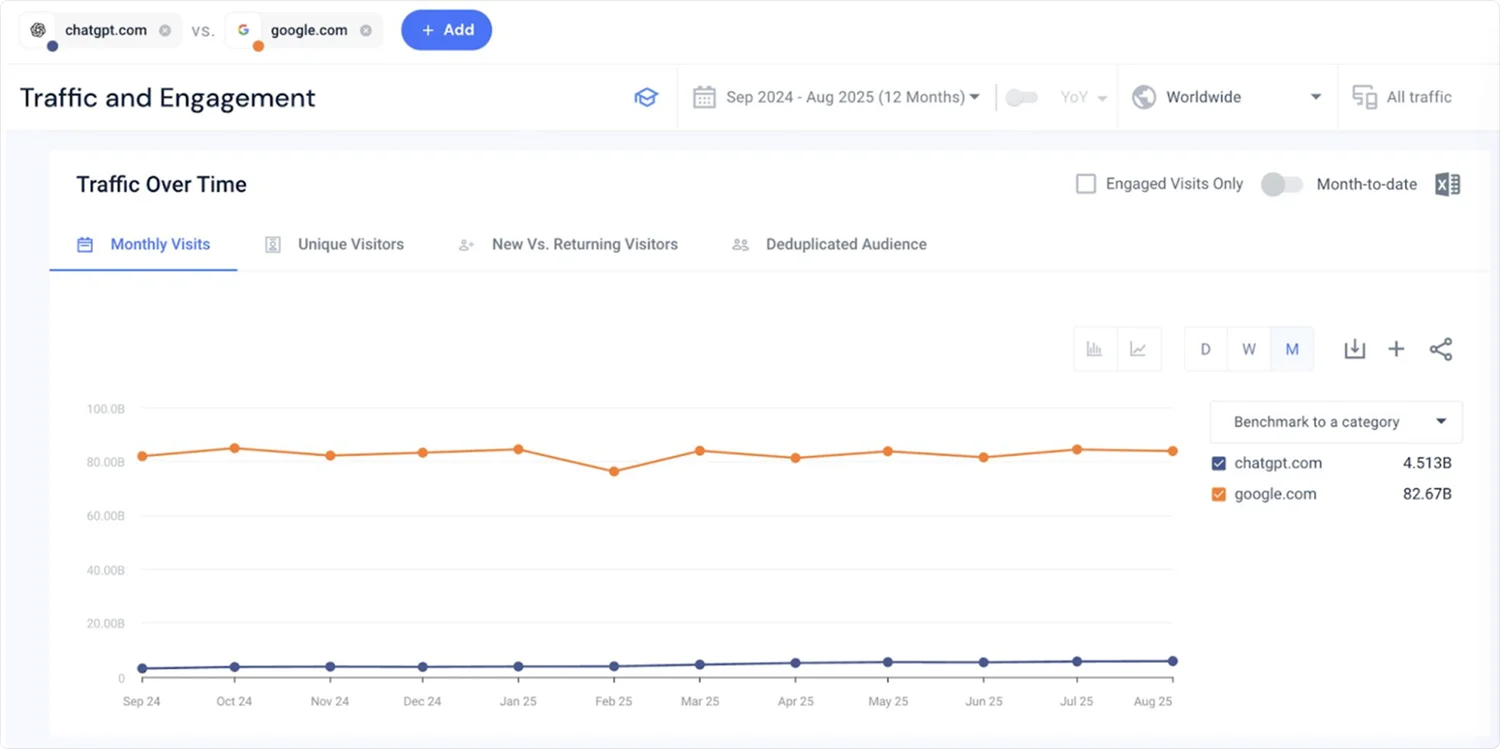
Behavior is hybrid, not either/or. According to SimilarWeb, nearly 95% of ChatGPT users also use Google, suggesting that people actively using AI search tend to combine LLMs & Google (or other traditional search engines).
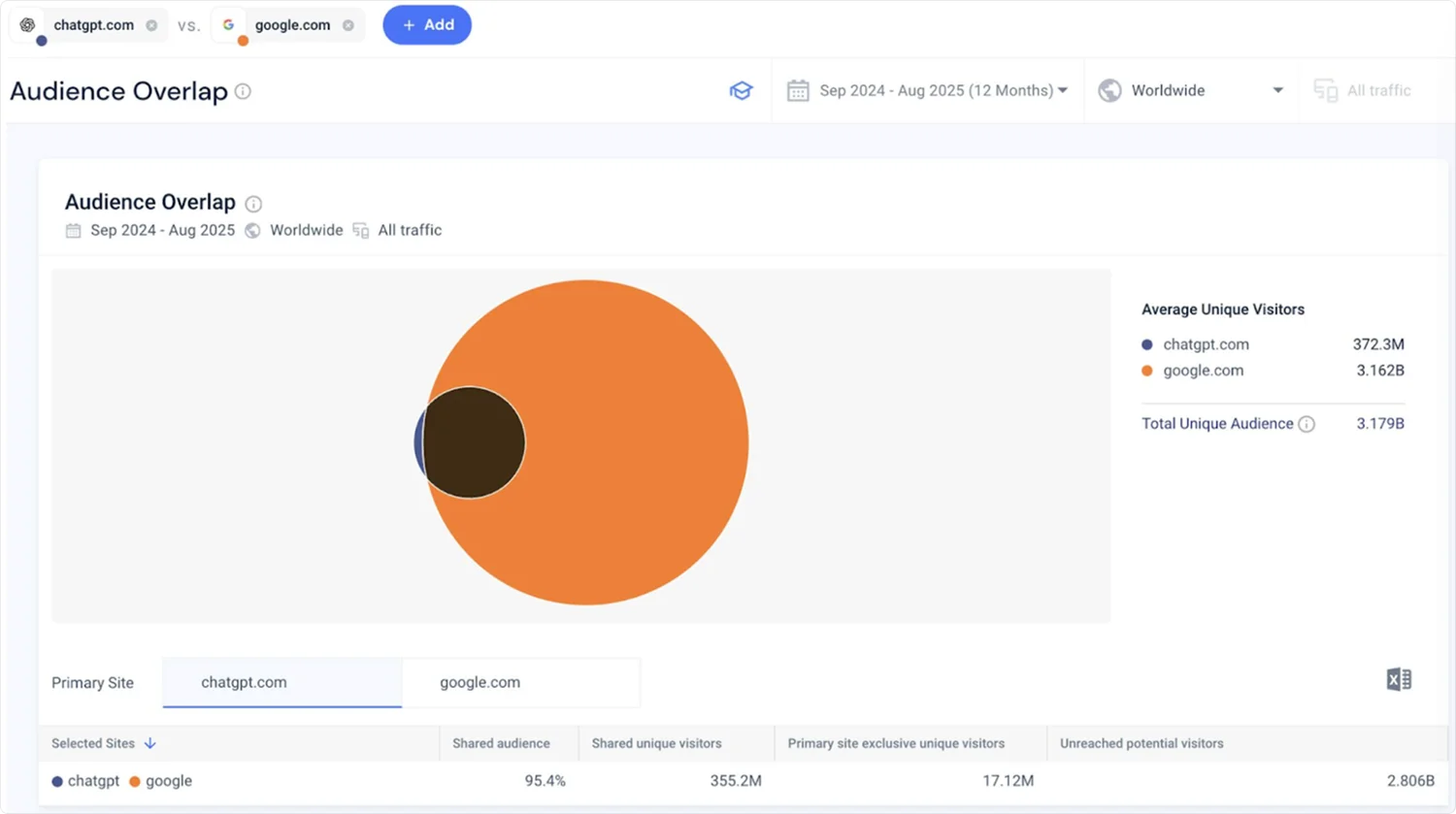
AI search is not big in pie-charts (yet).
This doesn’t mean that it should be ignored.
Here’s why adoption of AI search is mainstreaming:
- U.S. adults using AI as their primary search tool are projected to grow from 13M (2023) to 90M+ by 2027;
- Surveys estimate 1.7–1.8B global AI users with 500–600M daily users.
- Daily usage roughly doubled in 2024–2025, and even ~45% of baby boomers have tried AI.
Google’s share of general-information searches dipped from 73% → 66.9% over six months, while ChatGPT’s rose from 4.1% → 12.5% – showing that people tend to search for informational, TOFU queries on LLMS, preferably more.
Conversion quality goes in favor of AI search. Early tests show ChatGPT converting 6.9% vs Google’s 5.4% on transactional queries in the U.S. (and 5.5% vs 5.4% in the U.K.). AI referrals are smaller but are of higher-intent due to their deeper qualification through education on LLMs.
SEO & GEO foundations are same
Both search engines and AI assistants depend on the same SEO foundations: crawlability, indexation, clear structure, and trustworthy content. If Google or Bing cannot parse your pages, neither can ChatGPT, Perplexity, Copilot, or Gemini when they assemble answers.
LLMs do not “hallucinate” sources into existence for current, factual queries. They substantiated their responses by conducting third-party searches, retrieving live pages, and citing sources.
Reports show ChatGPT can draw on Google results in addition to Bing when grounding.
That process assumes your content is already in a searchable index, served quickly, and structured so key passages are easy to extract.
Think of the process as sequential:
- SEO makes content eligible. Crawlability, clean sitemaps, indexation, metadata, and authority signals ensure your site can be found.
- GEO improves selection. Structured, snippet-ready content increases the likelihood that AI assistants will cite it in responses.
Skip the first step, and there’s nothing for GEO to show. Skip the second, and your content may be indexed but remain invisible inside AI answers. The two disciplines are complementary, not competitive. Here are the most important reasons why:
Evidence: LLMs ground answers with web search
Reports indicate that ChatGPT fetches Google results as well as Bing. This process assumes that content is already in a searchable index, loads quickly, and is structured so that key passages are easy to extract.
ChatGPT
1. Aleyda Solis’s experiment – She found ChatGPT could not describe a new page until it was indexed by Google.
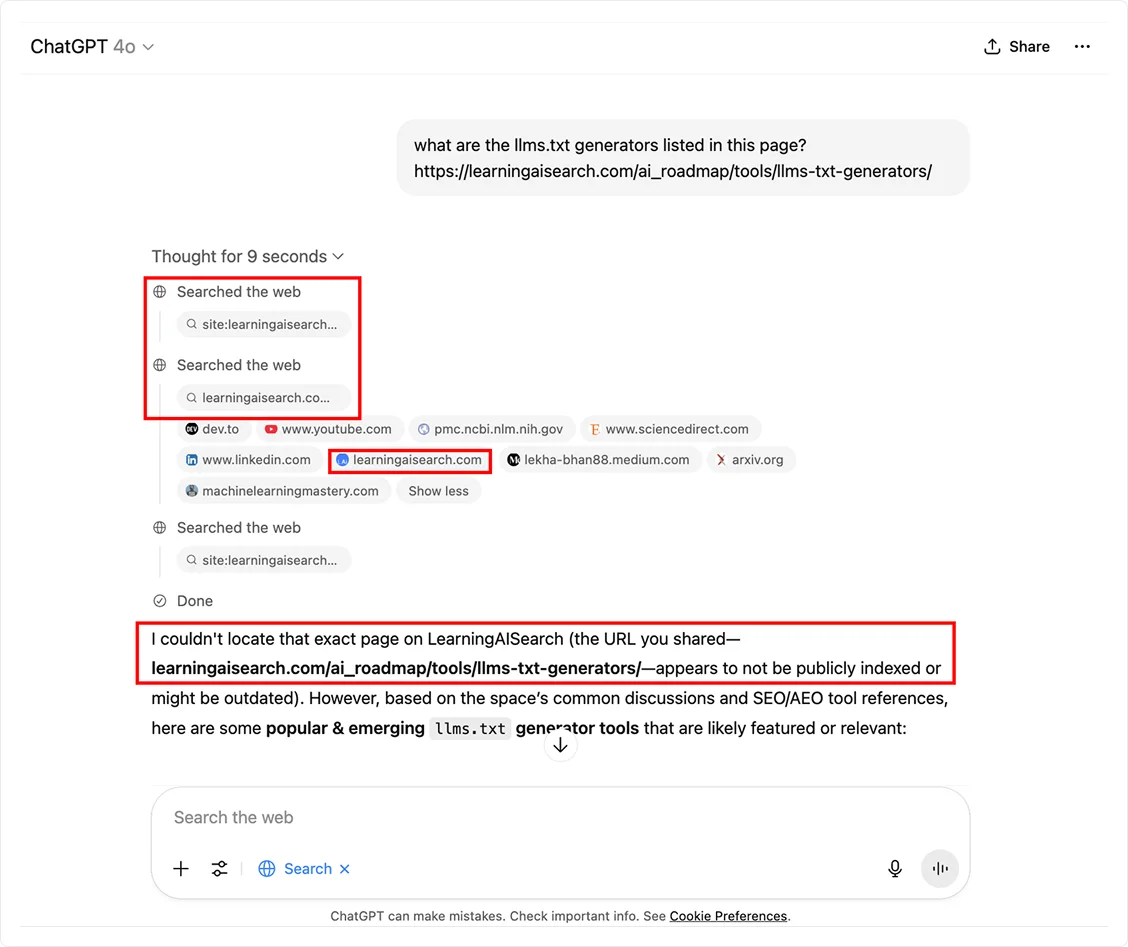
Once indexed, ChatGPT repeated the Google snippet word-for-word.
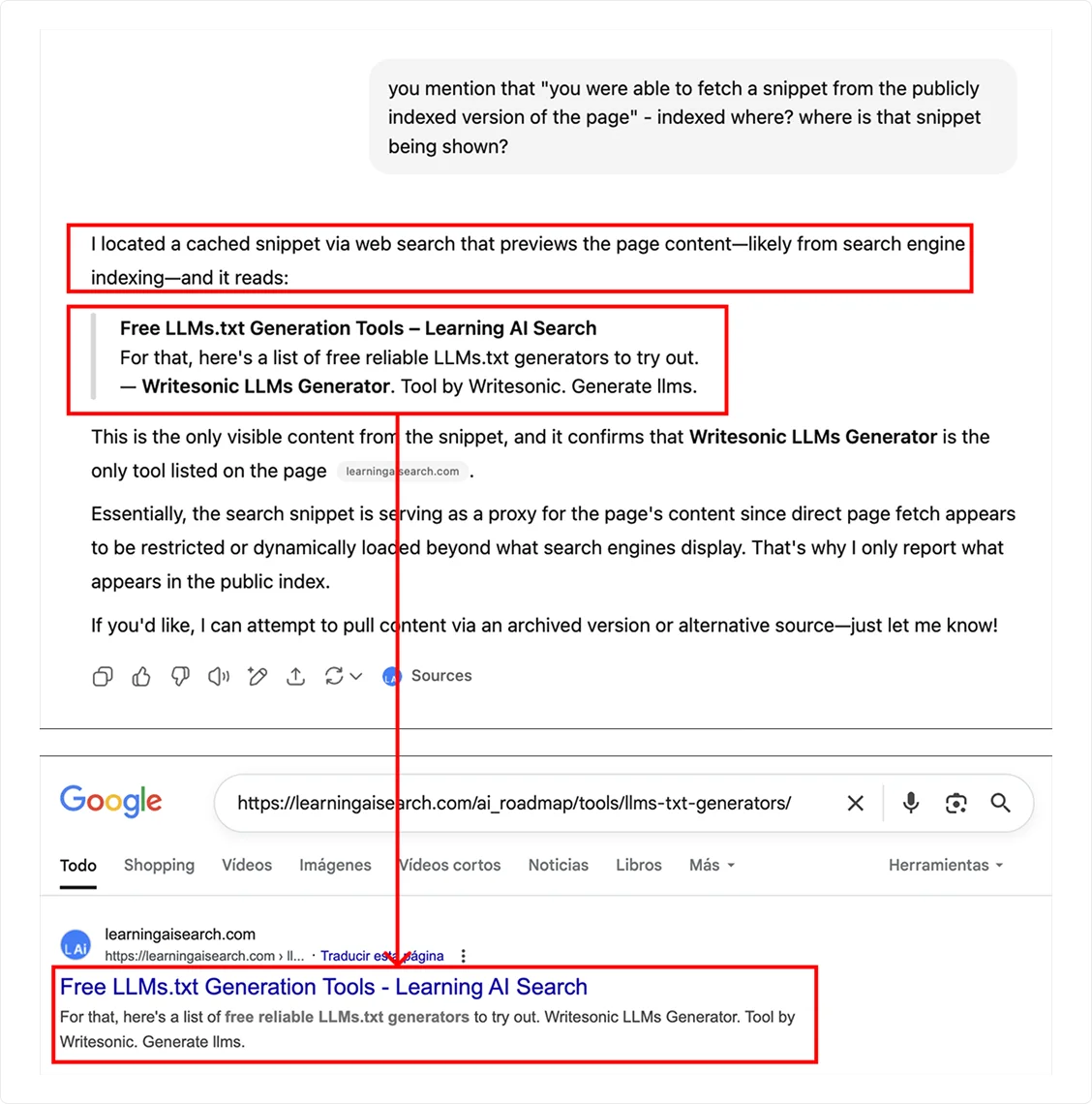
This suggests ChatGPT relies on search snippets when live page content isn’t retrievable.
2. Search Engine Journal’s summary – They confirmed that once the page appeared in Google results, ChatGPT referenced the snippet – implying it leans on Google results when Bing coverage is lacking.
3. OpenAI’s ChatGPT Search – OpenAI has stated that the feature uses third-party search providers and displays citations, meaning it fetches data from existing indexes rather than relying only on internal memory. Taken together, the evidence shows that ChatGPT uses external search indexes, including Google, to ground responses. If your content isn’t competitive in Google, it won’t be cited when ChatGPT calls Google for information.
Other generative engines follow the same pattern
1. Perplexity – Built around attribution, its interface always displays citations next to answers. In 2024 it launched a Publisher Program that shares revenue with media outlets, encouraging high-quality sources to allow indexing and citation. In August 2025, Perplexity released Comet Plus, a subscription product that distributes $42.5 million in revenue, 80% of which goes to publishers.
2. Microsoft Copilot (Bing/Edge) – Copilot integrates Bing’s index with generative answers. Its documentation states that responses include citations, and enterprise versions respect permission controls on internal documents.
3. Gemini / Google AI Overviews – Google’s AI displays inline links and a sidebar of cited sources. Google has said that standard SEO practices are enough – no special technical requirements beyond what’s needed for snippets.
Across platforms, the dependency is consistent: crawlable, indexed, trustworthy pages remain the currency of generative answers. GEO is inseparable from SEO.
Reasoning-first models are making SEO irrepleceable
OpenAI CEO Sam Altman has said his ideal model would be small, capable of superhuman reasoning, and use tools to fill knowledge gaps.
Training ever-larger models stuffed with encyclopedic facts is both costly and limited by data. Instead, the industry is shifting toward models that reason over retrieved facts. OpenAI has been open about this direction. GPT-5 wasn’t designed to know everything – it was designed to reason.
Altman has described his “ideal” model as one with massive context windows, strong reasoning ability, and access to external tools – not as a bloated encyclopedia of static information. This shift explains why retrieval and grounding now sit at the center of how AI works. Without access to fresh data, these systems are “virtually useless.”
With search integrations, they can deliver accurate, timely answers. In practice, this means assistants lean on Google, Bing, and other retrieval sources to close the knowledge gap.
The change is also economic, not just technical. Training gigantic models packed with facts has reached a wall:
- Costs are exploding
- High-quality training data is scarce
- Energy demands are unsustainable
- Retrieval is cheaper, faster, and more accurate.
Why does this matter for SEO?
Large language models don’t actually “know” facts. They generate predictions based on training data (memorization – the past), and when current or factual information is needed, they rely on grounding – pulling in live, external data from the web (retrieval/reasoning – the future).
That grounding step depends on SEO:
- Only crawlable, indexable, and trustworthy content gets pulled into grounding pipelines.
- Schema, clean architecture, and structured passages improve how reliably models extract and cite your content.
- Without SEO, the website is invisible – the model simply has no path to discover or validate it.
Grounding makes the relationship between SEO & GEO complementary.
LLMs need SEO-optimized content to produce useful, accurate answers. GEO is simply the next layer, increasing the odds of being chosen as a cited source once your site is in the eligible pool.
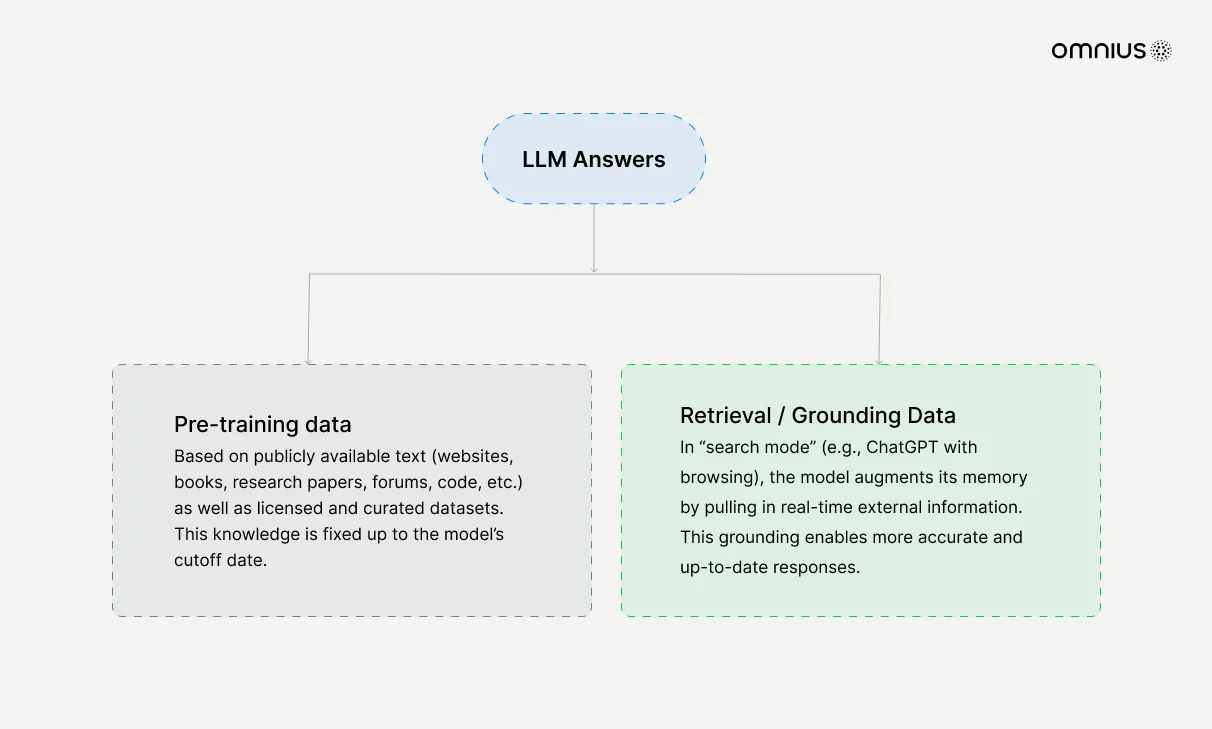
Google-only SEO is not sufficient anymore
One of our team’s strongest statements was that companies shouldn’t fall for the polarizing narratives, stating that “SEO is dead” and, in the other extreme, “GEO doesn’t exist”.
Simply, you should focus on both through something that we at Omnius like to call Multi-engine SEO.
Including both strategies within your marketing is something that can help you improve your total performance.
Especially considering the projections for the annual visitors by source throughout the following years.
One argument suggesting this is also the fact that working on SEO, ranking well on Google, doesn’t actually guarantee that your content will be cited in AI answers of LLMs.
Research shows there is often a gap between SEO performance and GEO visibility. AI systems introduce their own biases and citation issues, which can cause even strong content to be overlooked if it isn’t formatted for AI selection.
Chatoptic found that only 62% of brands ranking on Google’s first page were mentioned in ChatGPT answers. The correlation between Google rankings and ChatGPT mentions was almost zero (≈0.034).
Another motivation to include GEO is to make sure your company is described truthfully, as accuracy remains a problem. A Columbia Journalism Review study found more than 60% of AI answers contained factual errors, and many misattributed their sources. Perplexity mis-cited sources in 37% of answers. Grok misattributed them in 94%.
SEO success doesn’t automatically equal GEO success. AI engines skew heavily toward encyclopedic and community-driven sources, with very low referral rates.
LLMs contributing to branded search on Google
When someone searches for “the best CRM for SaaS businesses” on an AI search, the answer often comes back as a list of brand names.
According to Searchengineland, in 91% of cases, the links aren’t directing to the actual branded domain.
What happens next? Most people go straight to Google and type in those brand names to learn more.
That behavior shows how tightly AI search and SEO are connected. AI creates awareness by surfacing brands. SEO captures the follow-up demand when people search for those brands on Google.
When people hear about a brand through ChatGPT, Perplexity, or Gemini, they often validate and explore it through a Google search.
That extra layer of branded demand shows how tightly SEO and GEO are interconnected.
Why is the SEO vs. GEO narrative wrong?
In the rush to adapt to AI, many teams fall into one of two traps, both based on the false idea that SEO and GEO are separate silos:
- SEO without GEO – You may be indexed, but you will remain invisible in AI answers. Traditional rankings alone no longer guarantee visibility where users are clicking.
- GEO without SEO – You may format your content for citations, but if it is not crawlable, indexed, and authoritative, AI engines will never even see it.
Both mistakes come from treating GEO as separate or experimental. In reality, SEO and GEO are two layers of the same system: SEO provides eligibility and trust, while GEO maximizes visibility within AI-driven answers. Companies that treat them both as one strategy will outperform those that don’t.
If you scroll LinkedIn today, you’ll see endless posts declaring “SEO is dead” or “GEO is the new SEO.” Most of these insights come from people who haven’t even experienced one full market cycle.
Every time there’s a major innovation – mobile, voice, featured snippets – the same “end of SEO” narrative pops up. Then a year later, we all realize it wasn’t the end at all, just the next evolution. That’s exactly what’s happening now.
In practice, AI search isn’t killing SEO, but making it even more in demand.
Here’s that fact supported with the trends of searches for the SEO agencies:
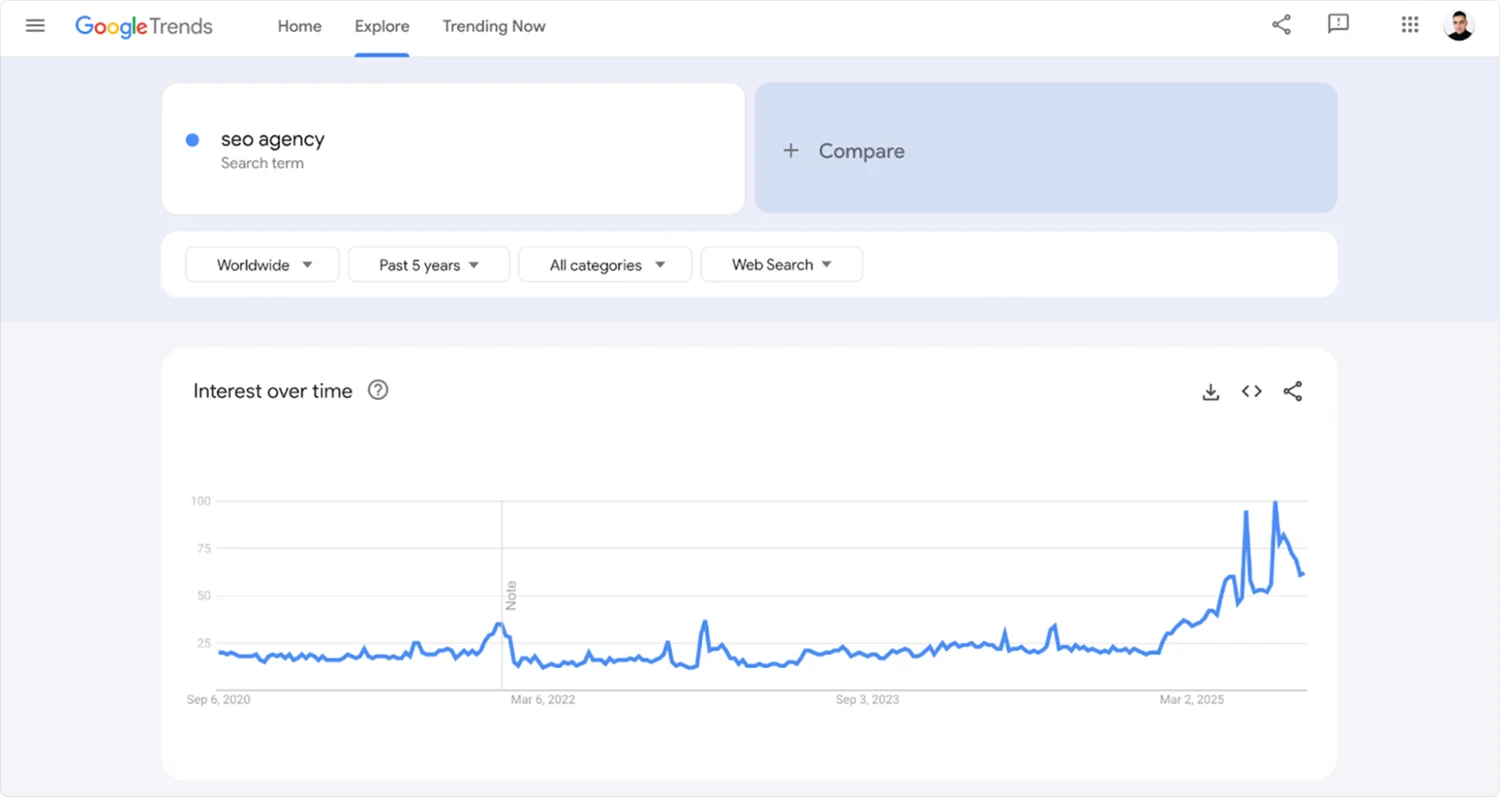
Future-proofing your strategy
What does the future look like for SEO + GEO, and how can marketers prepare? While predictions are never exact, several clear trends are emerging:
1. Longer, more complex queries
Users are becoming comfortable asking AI assistants highly detailed questions. ChatGPT queries, for example, average ten times longer than Google queries.
Future-proofing tip: Create in-depth content that addresses multi-part questions, but structure it so each piece of the question has a clear, standalone answer. This way, AI can easily extract the relevant part.
2. Vertical-specific adoption
In some industries, AI-driven search is growing much faster. About 30% of programming-related searches already happen on ChatGPT. Sectors like coding, finance, healthcare, and education may see accelerated AI usage.
Future-proofing tip: Analyze your audience. If they’re turning to AI tools (e.g., developers using Copilot), prioritize GEO optimizations tailored to that format, such as code snippets or Q&A-style troubleshooting.
3. AI’s influence on Google results
AI-generated answers are shaping search itself. Google’s Search Generative Experience (SGE) influences about 84% of queries and appears in nearly 87% of commercial searches. Yet only 4–5% of URLs cited in SGE overlap with Google’s top 10 results.
Future-proofing tip: Don’t rely solely on traditional rankings. Track which competitors AI is citing and why, then study their content structure and credibility.
4. Monetization and partnerships
As generative platforms mature, publisher compensation is becoming real. Perplexity, for instance, has a revenue-sharing program distributing millions to content creators.
Future proofing tip: Be ready to opt into official publisher programs, beta features, or compensation frameworks. These could become new revenue channels.
5. Regulatory and ethical scrutiny
AI scraping without consent is drawing legal and policy attention. Unauthorized scraping doubled in one quarter, and AI bots sent back 95% less traffic compared to normal search.
Future-proofing tip: Protect your content smartly. Use robots.txt to allow legitimate crawlers but block bad ones. Adopt emerging standards like Google’s Google-Extended tag to control AI usage, and be ready to participate in official attribution or opt-in frameworks.
6. Platform fragmentation
According to the GEO industry report, ChatGPT leads with about 60% market share among AI chatbots, rivals like Microsoft Copilot, Google Gemini, Claude, and Meta are rising.
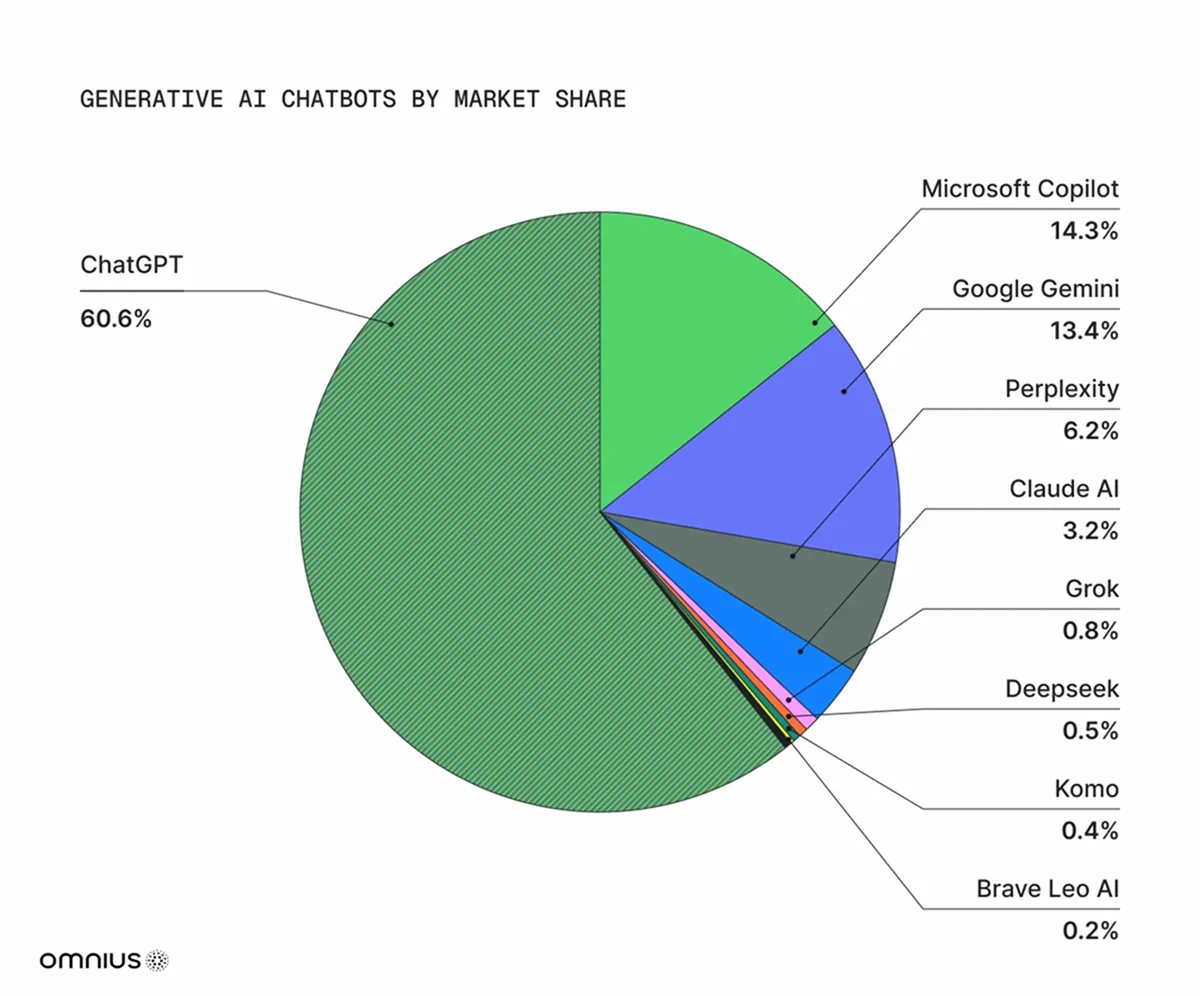
Niche assistants are also emerging.
Future-proofing tip: Diversify your GEO strategy. Don’t optimize solely for one AI. Test how your content appears across Bing, Google SGE, and niche AI tools, and adjust accordingly.
7. User feedback loops
Like Google’s use of click data, AI search engines will likely incorporate engagement signals. If users frequently click or upvote your content in AI answers, your citation rate may rise over time.
Future-proofing tip: Make sure your content provides a great user experience once clicked – fast load times, clear answers, and relevant details all reinforce the AI’s choice.
In short, future-proofing means staying informed, doubling down on content quality and technical excellence, adopting new attribution models, and being flexible as AI-driven search evolves. The principle remains constant: provide the best answer, whether delivered as a list of links or an AI-generated summary.
Conclusion
Generative Engine Optimization is real and growing in importance, but it is not a replacement for SEO. It only exists because SEO ensures content can be discovered, indexed, and trusted in the first place.
The companies that will win are those that treat SEO as the foundation and GEO as the amplifier. One makes you eligible, the other increases your share of citations. Treating them as separate – or worse, thinking one can replace the other, leads to wasted effort and lost visibility.
Search is not disappearing; it is redistributing. Google still drives the majority of traffic, while AI platforms like ChatGPT, Perplexity, Copilot, and Gemini are compounding quickly. By integrating SEO and GEO, you secure visibility across both.
The debate is not SEO vs. GEO. The reality is SEO + GEO, one system, two outputs, full-stack organic growth.
Want to see how this applies to your business?
Book a free consultation with us and let’s map your path to AI-driven visibility.
Nguồn: omnius.so
